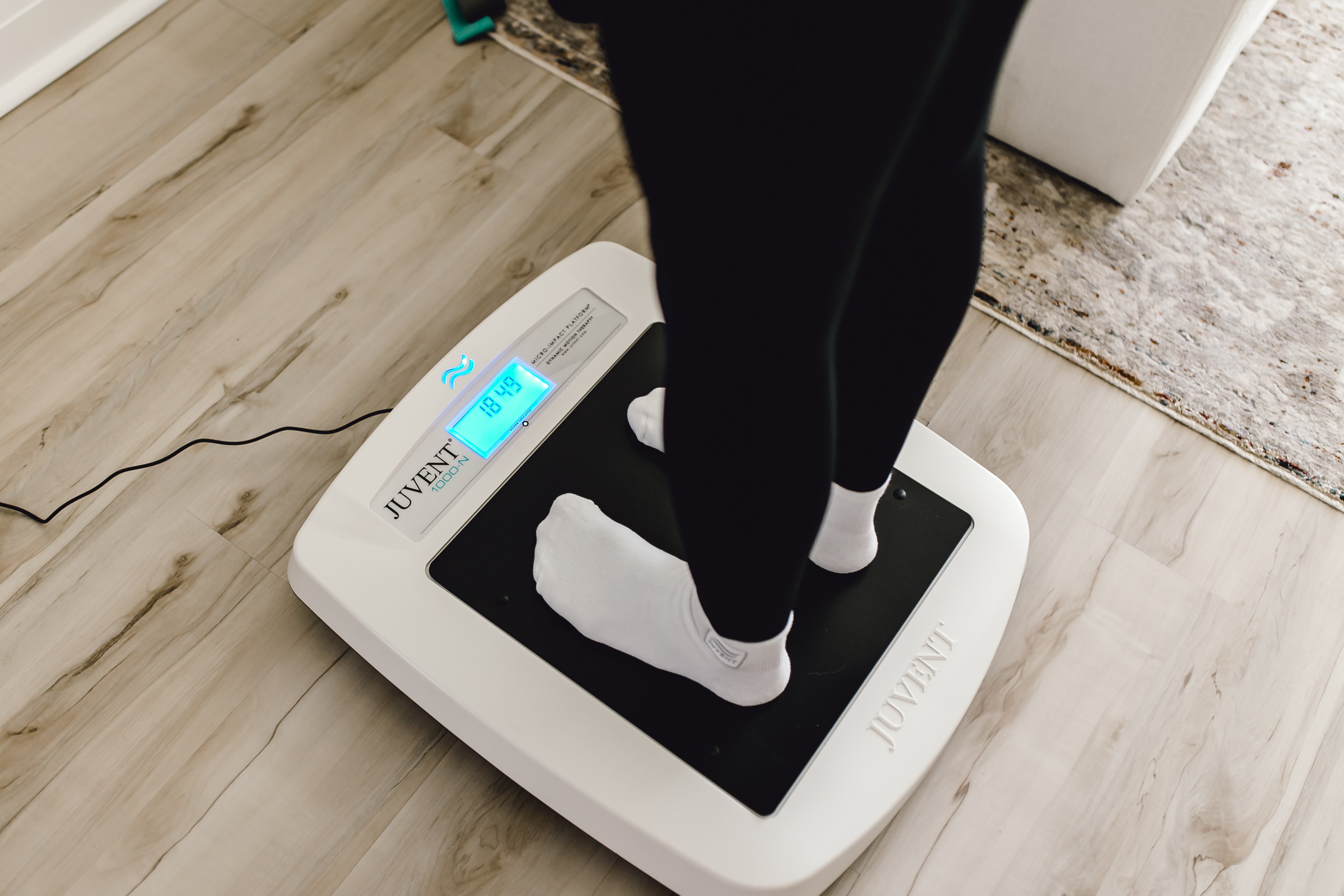Arthritis is a common condition that affects millions of people worldwide, causing pain, swelling, and stiffness in the joints. Arthritis is not a single disease but a broad term that encompasses numerous forms of the condition with different causes and symptoms. Understanding the various types of arthritis, their causes, and how they affect the body is crucial for effective management and treatment. We will explore the most common types of arthritis, the differences between osteoarthritis and rheumatoid arthritis, and how Juvent's Micro-Impact Platform can help manage arthritis symptoms.
How Many Types of Arthritis Are There?
There are more than one hundred (100) types of arthritis, each with its own set of symptoms, causes, and treatments. While all types of arthritis affect the joints, they can vary significantly in their severity and impact on a person’s daily life. The most common types include osteoarthritis and rheumatoid arthritis.
What Are the Types of Arthritis?
Osteoarthritis is the most common type of arthritis, affecting millions of people worldwide. It occurs when the protective cartilage that cushions the ends of the bones wears down over time, leading to pain, swelling, and stiffness, primarily in the hands, knees, hips, and spine. Osteoarthritis is often associated with aging, but it can also result from joint injuries or repetitive stress on the joints.
Rheumatoid arthritis (RA) is an autoimmune disease in which the immune system mistakenly attacks the membranes that surround the joints. This is a material called the synovium. The immune system’s attack leads to inflammation, causing pain, swelling, and eventually joint damage. Rheumatoid arthritis can affect any joint in the body but is commonly seen in the hands, wrists, and knees. It can also cause systemic symptoms such as fatigue and fever.
Osteoarthritis vs. Rheumatoid Arthritis: Key Differences
Osteoarthritis is primarily a degenerative joint disease caused by wear and tear on the joints. Rheumatoid arthritis is an autoimmune disease where the immune system attacks healthy joint tissues.
In osteoarthritis, you’ll typically see pain and stiffness that worsen with activity and improve with rest, and imaging may show bone spurs. There’s also often a loss of range of motion in the affected joint. RA sufferers have persistent joint pain, swelling, and stiffness that are usually worse in the morning and after periods of inactivity. Osteoarthritis may only affect a joint on one side or be worse on one side, but in RA there is symmetrical joint involvement. RA also includes systemic symptoms like fever and fatigue.
Osteoarthritis is more common in older adults, typically starting after the age of 50. Rheumatoid arthritis may occur at any age but most commonly begins between the ages of 30 and 60.
Which Is More Serious, Osteoarthritis or Rheumatoid Arthritis?
Both osteoarthritis and rheumatoid arthritis can significantly impact a person's quality of life, but they differ in their progression and severity. Osteoarthritis generally progresses slowly and affects only the joints, but it can lead to severe disability if not managed properly.
RA can progress rapidly and cause severe joint damage and deformity. It can also affect other organs and systems in the body, making it potentially more serious than osteoarthritis.
Gentle Management of Arthritis Symptoms
With any form of arthritis, the key is managing symptoms and joint health through methods that don’t exert strain that causes flare-ups. Juvent's Micro-Impact Platform provides gentle, low-magnitude vibrations customized to your body’s frequency. This tool provides numerous benefits for individuals with arthritis:
- Improves Joint Health: The gentle vibrations help stimulate circulation and reduce joint stiffness and pain.
- Enhances Bone Density: For those with osteoarthritis, the platform helps maintain bone health by promoting the formation of bone-building cells (osteoblasts).
- Reduces Inflammation: Regular use can help reduce inflammation associated with rheumatoid arthritis, alleviating pain and swelling.
Juvent's Micro-Impact Platform is unique due to its patented technology that provides physiologically effective micro-impact vibrations without the risks associated with high-frequency, high-magnitude devices. Unlike high-frequency vibration platforms, Juvent’s platform delivers safe, low-magnitude vibrations tailored to your body’s needs. As a Registered Class I Medical Device manufactured in the USA, it is designed to be safe for long-term use, making it an ideal choice for managing arthritis symptoms and improving overall joint and bone health.
Understanding the different types of arthritis and their impact on the body is essential for effective management and treatment. Incorporating Juvent’s Micro-Impact Platform into your arthritis management plan can help alleviate symptoms and improve joint and bone health safely and effectively. Hear testimonials from people just like you about how our Micro-Impact Platform has changed their lives, and learn more about how Juvent can support your journey to better health.
In the US, the Juvent device is considered investigational for the treatment of osteoporosis or improvement/maintenance of bone mineral density and our claims have not been reviewed or cleared by the FDA to treat any disease or condition. (2) Calculated over the 20+ year expected life of a Juvent. The JUVENT® Micro-Impact Platform® is Registered as a Class I medical device for exercise and rehabilitation. JUVENT products are covered by the following issued patents, pending patents, and their foreign equivalents: 6,843,776 6,884,2277,094211 7,207,954 7,207,955 7,985,191 8,114,036 11/369,611 11/486,538. Juvent, Dynamic Motion Therapy, Micro-Impact Platform, and the symbol are Registered trademarks of Regenerative Technologies Corporation.




Share:
The Impact of a Sedentary Lifestyle on Bone Health: How to Stay Active
Four Warning Signs of Gout and Next Steps for Treatment